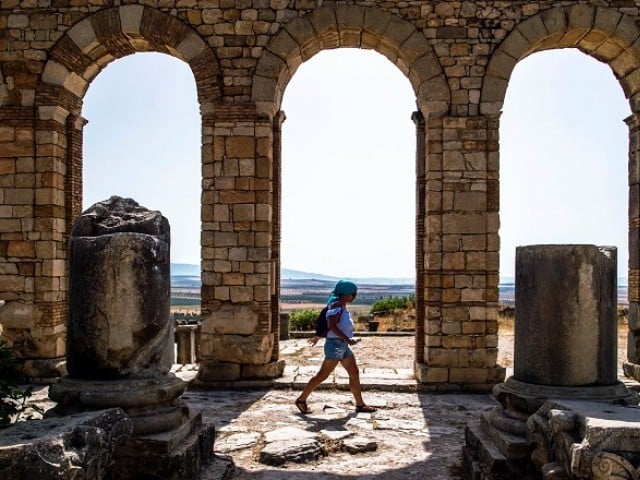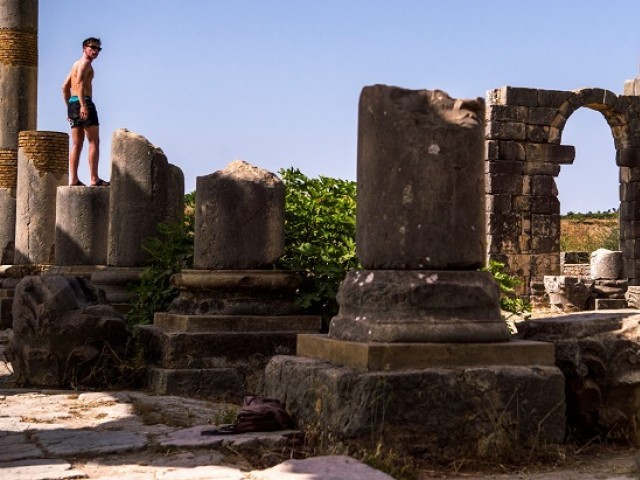Volubilis was founded in the third century BC by a Moorish community, before being annexed by the Roman Empire in 42 AD.

Tourists walk through the ruins of the ancient Roman site of Volubilis, near the town of Moulay Idriss Zerhounon in Morocco’s north central Meknes region. Picture: AFP
Situated in a fertile plain at the foot of Mount Zerhoun, the sprawling remains of Morocco’s oldest Roman site – Volubilis – have survived pillage and long periods of neglect.
After decades of decay, however, custodians of the now closely guarded ancient city have turned the page and are bringing back the tourists.
The site, nestled among olive groves near the city of Meknes, boasts a new museum and visitor centre and has been attracting hundreds of thousands of visitors.
They stroll along the main artery lined with porticoes and the remnants of vast mansions, whose mosaic floors testify to a prosperous past.
A triumphal arch, a classic symbol of Roman architecture, sits at the top of what once was the main compound.
Known in Arabic as Oualili, the city was named a Unesco World Heritage site in 1997.

In this file photo taken on July 25, 2018, a tourist walks through the ruins of the ancient Roman site of Volubilis. Picture: AFP
The ancient city has “known several civilisations, from the Mauritanian era to the Romans through the Islamic period”, according to Mohamed Alilou, topographer and assistant conservator of the site.
Volubilis was founded in the third century BC by a Moorish community, before being annexed by the Roman Empire in 42 AD. At its peak, it would have counted up to 15 000 inhabitants.
Threatened by civil wars across the empire, the Romans evacuated the city in 285. It didn’t regain its splendour until the arrival of Arab conquerors in the 17th century.
In the eighth century when the Idrisid dynasty erected the city of Fez as its new capital, Volubilis fell once more into disuse.
At the end of the 17th century, Sultan Moulay Ismail sent thousands of slaves to plunder Volubilis’ marble columns for the construction of his palace in Meknes.
“On the track leading from Volubilis to Meknes, we found capitals [of columns] abandoned by slaves, who fled when they learnt that Moulay Ismail was dead,” said Alilou, who has been watching over the site for more than 30 years.

A tourist walks through the ruins of the ancient Roman site of Volubilis. Picture: AFP
Excavations at Volubilis began in 1915, along with research programmes and restoration work. But renewed interest in the site brought with it looting, especially during the period of French colonial rule from 1912 to 1956.
One particularly striking case in 1982 made headlines when a marble statue of Bacchus – the Roman god of wine – disappeared.
In a desperate bid to find the relic, King Hassan II dispatched gendarmes who “interrogated, abused and beat” peasants who “didn’t know Bacchus from Adam and Eve”, according to Moroccan press reports.
The effort was in vain and the statue was never found.
“The people are still traumatised,” said a resident of nearby Moulay Driss Zerhoun.
For more news your way, download The Citizen’s app for iOS and Android.
Download our app




